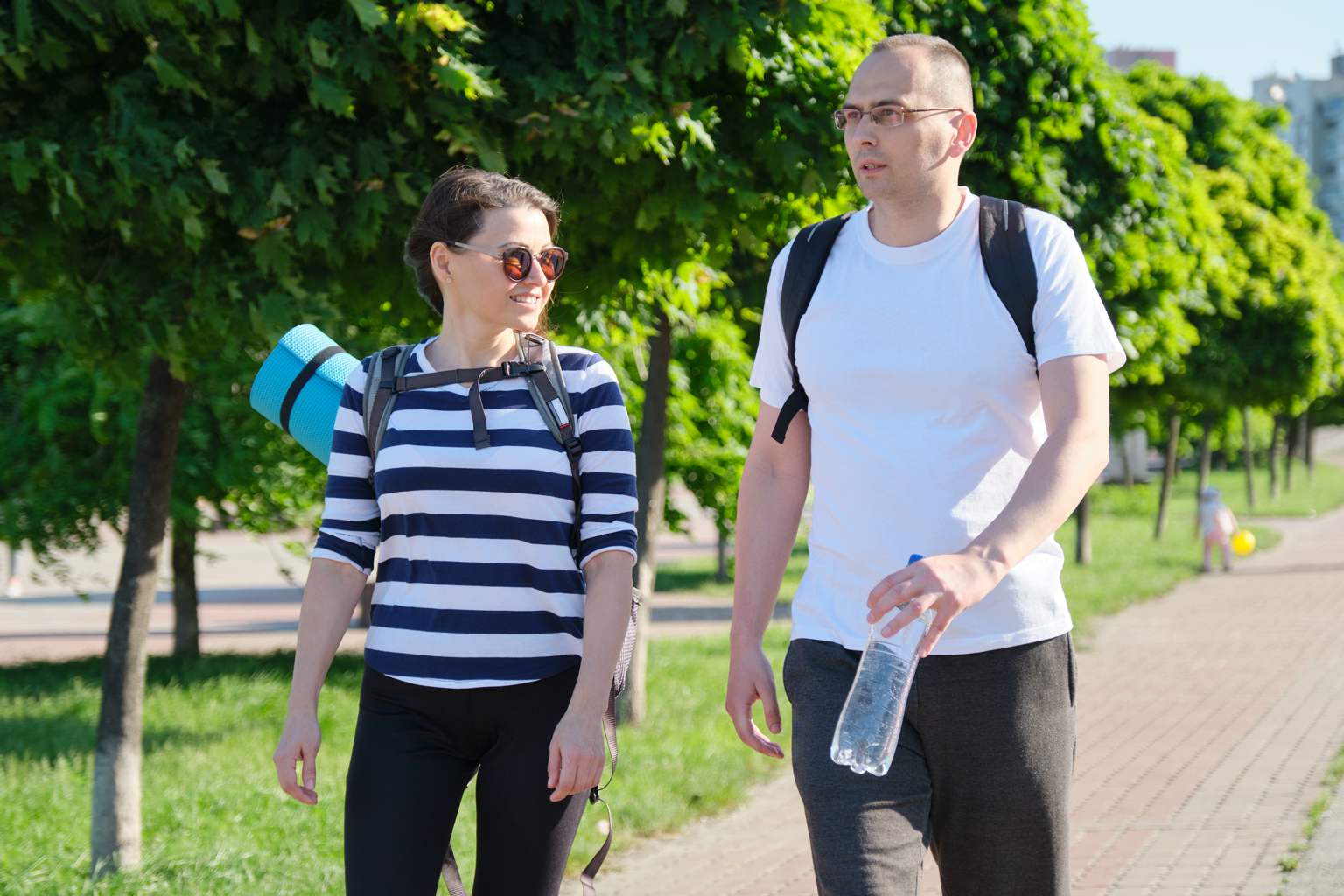When most people think about fitness, images of sweat-drenched gym sessions, high-intensity classes, or long-distance running often come to mind. But there’s a powerful, often overlooked form of exercise that’s accessible to nearly everyone, requires no fancy equipment, and offers a wealth of physical and mental health benefits: walking. In our fast-paced world, it’s easy to dismiss walking as “too easy” or “not enough.” However, research reveals that making walking a regular part of your day might be the best decision you can make for your long-term well-being.
A simple habit with major physical benefits
Walking may seem basic, but its impact on your physical health is anything but. Numerous studies show that walking for just 30 minutes a day, five days a week, can significantly reduce the risk of chronic diseases. The benefits go far beyond just “stretching your legs.” Here’s what you gain when you step outside:
- Improved cardiovascular health: Walking helps strengthen your heart, lowers blood pressure, and improves overall circulation. This reduces your risk of heart disease and stroke.
- Better weight management: Regular walking boosts your metabolism, helping you maintain a healthy weight or even shed extra pounds, especially when combined with balanced nutrition.
- Stable blood sugar: Consistent walking supports better regulation of blood sugar levels, lowering your risk of developing type 2 diabetes.
- Stronger bones and joints: Walking is a weight-bearing exercise, which increases bone density and helps prevent osteoporosis as you age. It also keeps your joints flexible and can reduce arthritis pain.
- Improved balance and coordination: Especially for older adults, walking regularly can lower the risk of falls and help maintain independence.
Boosting mental health with every step
While the physical benefits are impressive, walking offers a host of advantages for your mental health as well. The simple act of moving your body triggers the release of “feel-good” brain chemicals such as endorphins and serotonin. This helps combat symptoms of anxiety, depression, and everyday stress.
Even short walks outdoors can improve your mood and offer a much-needed break from screens, noise, and mental clutter. Therapists increasingly recommend “walk and talk” sessions because walking can help process emotions and create a sense of openness. Stepping outside for a 15-minute walk during a hectic workday can restore your focus and lift your spirits. In fact, many people find their best ideas or solutions arise while walking—not while sitting at a desk.
Walking and brain performance
Recent research shows that walking can actually improve your cognitive function. Regular walkers have a lower risk of developing dementia and other age-related cognitive issues. By increasing blood flow to the brain, walking enhances memory, concentration, and overall brain plasticity. For children, walking to school has been linked to higher academic performance and better attention spans. For adults of all ages, even a quick stroll can help clear brain fog and spark creativity.
Why walking works for everyone
One of the greatest strengths of walking is its accessibility. Unlike many exercise routines, walking welcomes everyone—regardless of age, fitness level, or income. You can walk slowly or quickly, for 10 minutes or for an hour, in the city or in nature. There are no barriers. All you need is a comfortable pair of shoes and a willingness to take the first step.
Inclusivity makes walking unique. You don’t have to “get fit” to start. Whether you’re a beginner or already active, you can tailor your walking routine to your needs and gradually increase your duration or intensity as you go.
Tips for making walking a daily habit
- Schedule your walks at the same time every day. Consistency helps turn walking into a reliable part of your routine.
- Listen to your favorite music, podcasts, or audiobooks to keep walks interesting.
- Try walking meetings or take phone calls while strolling, especially if you work remotely.
- Track your steps with a fitness tracker or smartphone app for extra motivation.
- Walk with a friend, family member, or join a local walking group for accountability.
- Choose scenic routes—parks, waterfronts, or quiet neighborhoods—to make your walks more enjoyable.
The science of small steps
You don’t need to walk for hours to make a difference. Even short walks can boost circulation, loosen tight muscles, and refresh your mind. One Stanford study found that walking can increase creative thinking by up to 60%. If you’re stuck on a problem or feeling mentally drained, a five-minute walk might be exactly what you need to reset and recharge.
Walking and longevity
The benefits of walking add up over time. A large-scale study showed that people who walked at least 7,000 steps per day had a much lower risk of early death compared to those who were mostly sedentary. Researchers believe this is because walking supports heart health, reduces inflammation, and helps maintain a healthy metabolism.
The best part? You don’t need to do it all at once. Break up your steps throughout the day—walk to the store, take the stairs, enjoy an after-dinner stroll. Every step counts toward a longer, healthier life.
Final thoughts
Walking is so much more than a way to get from point A to point B. It’s a daily ritual that enhances your health, clears your mind, and helps you reconnect with the world around you. In a culture obsessed with extreme workouts and instant results, walking offers something truly valuable: a return to your own natural rhythm and the opportunity to care for your body and mind—one step at a time.
Lace up your shoes. Take the first step. Let walking become your quiet revolution in wellness.
